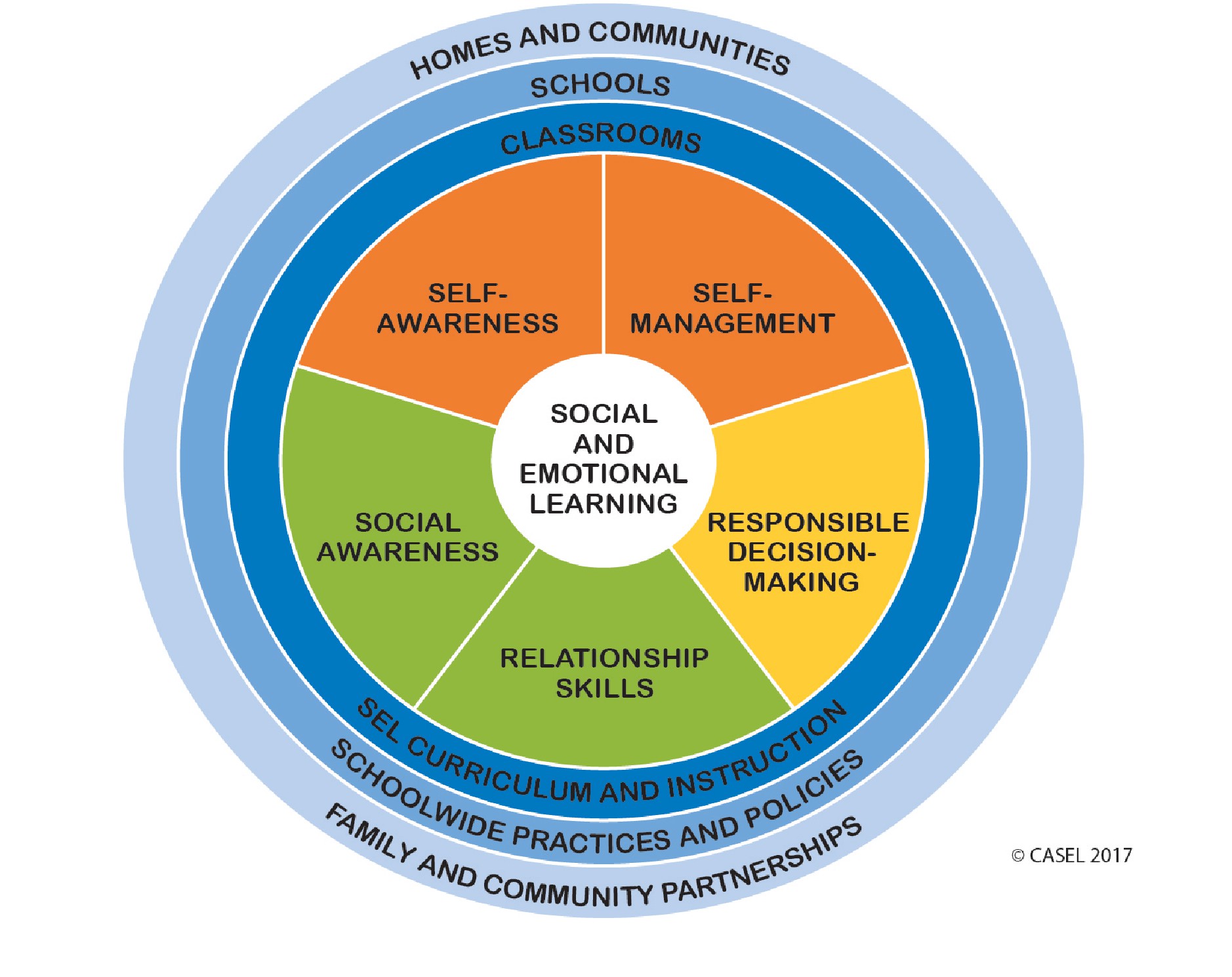By Maria-Nefeli Andredaki,
Teaching can be rough and emotionally draining for both educators and learners. Long hours spent holed up in a classroom with multiple little humans whose needs and interests vary drastically is not ideal for anyone who cares about said little humans’ well-being, progress, and growth. This is where the SEL (Social and Emotional Learning) approach comes in handy!
SEL was fully developed after 1994, based on years of research by Timothy Shriver and Dr. Weissberg, as a way to support learners’ academic and social success. The five core competencies of SEL’s framework are: self-awareness, self-management, responsible decision-making, relationship skills, and social awareness. These competencies can be considered as the main ingredients an educator has to include in their lesson recipe, no matter the subject they teach, in order to foster their learners’ long-term success, both academically and emotionally.
Now, some of you may be thinking; how can someone promote social and emotional intelligence through a Math lesson? How can a teacher find the time to cover all the school year’s material while focusing on the development of emotional IQ? Well, I believe that these questions -more than anything- showcase the degeneration of values that our current generation is experiencing, a fact that makes SEL all the more necessary. When did academic and professional success become more important than self-awareness? When did knowing three languages at the age of 14 become more important than knowing how to form healthy friendships? When did getting high grades become more valuable than empathy? The answer is unfortunately simple; the priorities we have are a testament to the state of the world, highlighting the awful circumstances in which someone has to survive. The only way that someone can be independent is by getting a promotion at their job and raising their salary, which cannot happen if they don’t have the necessary qualifications; which cannot happen if they don’t have the necessary certificates and background, etc. It is a vicious cycle that begins when children are rewarded for getting a 10 on a random test, instead of being taught how to know and love themselves.

So how can SEL be incorporated into an already packed schedule? Here are some ideas that can be applied to multiple subjects!
1) Group work in class
Group work is an amazing opportunity to create bonds between students and promote communication skills. Students can form circles and solve Math exercises, do a science experiment, and write a story or whatever is needed for the specific subject. Doing this for every single activity and subject is, of course, unrealistic. However, incorporating it once every day in different lessons can really develop the students’ cooperation and change their perspective on how activities can be done.
2) Self-Assessment
Allowing learners to assess their skills and knowledge instead of just testing them is a great way to cultivate self-awareness and confidence. Providing them with self-assessment quizzes or having them write a journal entry on what they learned that day and how well they think they did can be tremendously beneficial to their self-image and academic achievement, as it allows them to focus on their own opinion of themselves and improve their weaknesses.
3) Use of Literature
As an EFL teacher, literature is very near and dear to my heart. Stories are a great way to identify with different characters and relate to situations, find comfort in shared experiences, and gain understanding of other people’s motives, thoughts, and lifestyles. Consequently, literature is one of the best ways to cultivate empathy and combat all kinds of discrimination.
4) Presentation
Making presentations for different kinds of subjects, either individually or in groups, is an ideal way to help students develop self-assurance, as well as communication skills. A good idea for a presentation would also be the students acting as teachers and introducing some of the concepts that are going to be taught in the following lesson. This would engage the other students’ interest and require from the presenters to have adequate knowledge of their concept, in order to be able to competently explain it and answer any questions that may arise.
I hope that this article highlighted the need for more social and emotional learning to be incorporated into the school curriculum. Whatever tests you are preparing your students for, don’t forget the importance of creating happy, respectful, well-adjusted adults who are able to create meaningful, long-lasting relationships.
References
- Our History. CASEL. Available here
- 28 Social-Emotional Learning Activities for the Classroom. Facing History. Available here




